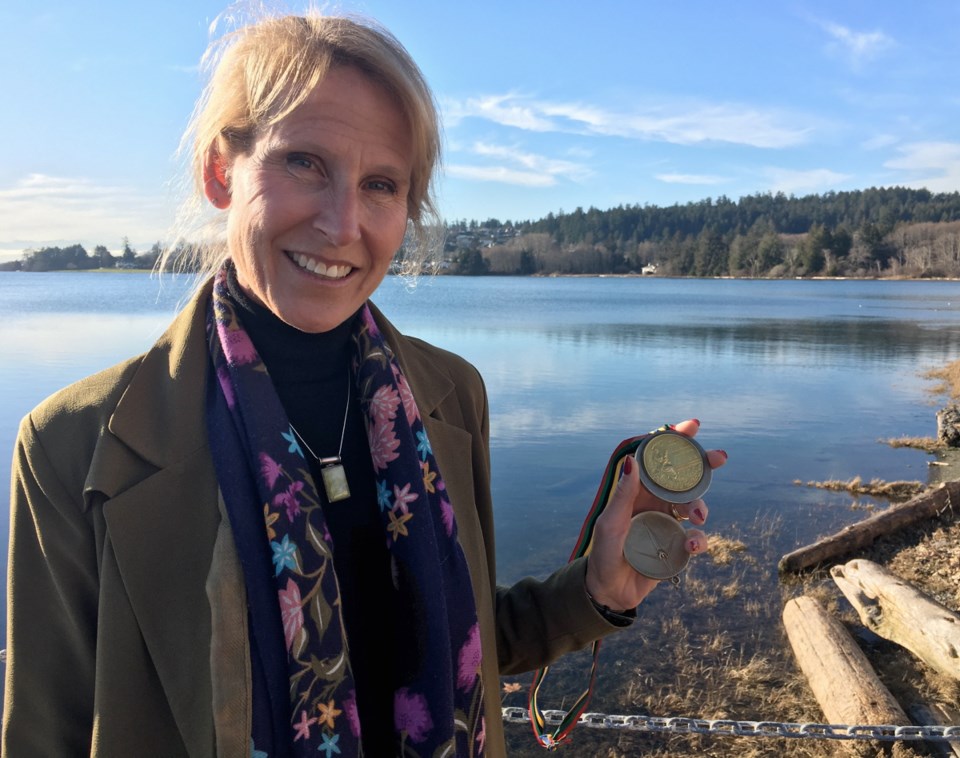I am constantly hearing the word “snowflake” used to describe young adults whose behaviour is perceived as entitled or too sensitive.
As I sat down to write this column, I was going to call it the word of 2019, but after a little research I learned the actual term is “Snowflake Generation.” It was added to Collins Dictionary in 2016 and defined it as “the young adults of the 2010s, viewed as being less resilient and more prone to taking offence than previous generations.” Before we decide if this term has merit or not, we need to remember that every generation criticizes the up-and-coming generations.
I think this term is dangerous, because it mocks people who may have been treated inappropriately or unjustly or even abused. If someone speaks up, their age is recognized, and the answer is “Poor snowflake.”
My daughter is part of the Centennial Generation and I spend a lot of time teaching her to believe in her worth and to stand up for herself. Many of us grew up where children were punished for questioning the behaviour of adults.
I was speaking with our local rowing hero Jennifer Walinga, who is on a mission to empower athletes who have been, are being or may be mistreated by a coach. There are plenty of amazing success stories from participating in sports and there are also plenty of stories of abuse.
We’ve all read about the 156 women who confronted USA Gymnastic coach Larry Nassar, or Theoren Fleury and Sheldon Kennedy who spoke out against the abuse they endured from their junior hockey coach Graham James.
Walinga mentioned a survey Athletes saąúĽĘ´«Ă˝ conducted where 20 per cent of athletes reported experiencing sexual abuse in sport and a whopping 65 per cent of athletes reported psychological abuse. Abuse can never be justified, and with more than half of our national athletes being mentally abused, there is clearly a problem.
“Youth sports have a lot of abuse and it comes from coaches, parents and even other players,” said Walinga. “Abuse affects an athlete’s confidence and sense of self. This can occur when a coach bullies players, doesn’t allow them to do things other players can or criticizes the player’s size and shape.”
Sports are such a crucial part of childhood and teach so many lessons about success and failure that help mould successful adults.
It’s tricky because society is under the impression that coaches need to be hard on athletes. We’ve all seen posts on social media saying, “Coachable kids become employable adults, let someone be hard on your kid.”
I asked Walinga, a world-class athlete, how can we tell when a coach crosses the line from coaching to being abusive.
“A good coach will offer you feedback that you can use to improve, like technical critiques. Crossing the line would be comments on your weight or your mental capacity,” said Walinga. “Athletes do better when their coaches set high standards, but athletes don’t need someone yelling derogatory comments at them or pushing them to injury.”
Walinga is still a competitive rower and has been involved in sport and rowing for nearly 40 years.
“I’m 54 and I am still seeking critique because as a rower I want to go faster,” Walinga said. “I am always prepping athletes to seek critique.”
Walinga believes there’s a better way to ensure coaches can be tough, but fair and respectful. She wants coaches of all levels to have mandatory mentors and sanctioned training that involves a values-based approach to sport. Walinga is working on a research project where she studies high-performance teams and interviews athletes and coaches to establish how a values-based approach to sport and coaching is being leveraged for success.
“It can’t only be about a gold medal,” Walinga said. “We’re owning the podium, but we can do that and still be safe and ethical.”
This is an interesting concept, because it seems like when teams focus on more than winning, the likelihood of success is bound to increase.
There are many great coaches, mentors and parents involved in youth sports and they are making a significant difference to our youth and our communities. I agree with Walinga in finding ways to train and guide coaches before they step on the field so we can ensure our youth are getting all the benefits from sports they can.
When youth experience abuse of any kind, in sports or beyond, we need to make sure they are comfortable speaking up, and acknowledging they deserve better. It’s dangerous calling young people “snowflakes,” because you never know what their behaviour is a reaction to.
Charla Huber is the director of communications and Indigenous relations for M’akola Housing Society and M’akola Development Services.



